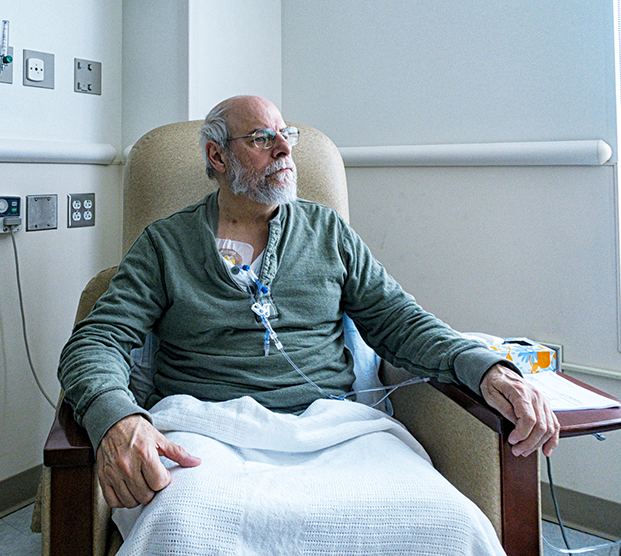Medical Oncology
Home » Braving Cancer Together » Prostate Cancer » Medical Oncology

Medical oncology is the area that manages treatment including chemotherapy, hormone therapy, and immunotherapy for prostate cancer . These treatments are used for men where there is evidence that prostate cancer has spread beyond the prostate.


Chemotherapy
Chemotherapies are medications that treat cancers. They are usually given intravenously, however some may be oral. Patient who receive chemotherapy intravenously will have the medication delivered using a catheter, port, or pump.
Examples of chemotherapy to treat prostate cancer include docetaxel (Taxotere) and cabazitaxel (Jevtana). Docetaxel is typically the first line drug used during chemo treatment in patients with prostate cancer. The drug may be combined with prednisone, which is a corticosteroid.
Prior to beginning chemotherapy, patients receive a full health evaluation including blood tests to check liver and kidney function. This is necessary as side effects can be significant including nausea, vomiting, loss of appetite, and hair loss.
Hormone Therapy
Hormone therapy for prostate cancer stops testosterone production as testosterone stimulates prostate cancer cell growth. Elimination of testosterone production usually stops the growth of cancer cells for a period of time.
This treatment may be recommended for patients in certain situations including:
- The cancer has advanced beyond the prostate
- Rising PSA levels levels after treatment
- In conjunction with radiation therapy




The three approaches to elimination of testosterone production are:
- Taking medication to block cancer cells from receiving testosterone
- Taking medication to stop the body from creating testosterone
- Surgical removal of the testicles
There two medication types that can be administered include:
LHRH antagonists and agonists: These medications stop the production of testosterone in the body and are typically injected either into a muscle or under the skin at specific intervals.
- Anti-androgens: These medications are taken orally and can stop testosterone from reaching the cancer cells. Anti-androgen drugs are typically taken before or together with an LHRH agonist.
Immunotherapy
Immunotherapy for prostate cancer is available known as sipuleucel-T (Provenge) and is an option for patients who have not responded well to hormone therapy.
The process involves taking a blood sample and a certain type of immune cell known as dendritic cells are extracted. The cells are combined with a protein that sensitizes them to prostate cancer proteins.
The cells are injected into the body and will attack the cancer cells. Patients typically receive three treatments spaced two weeks apart.
